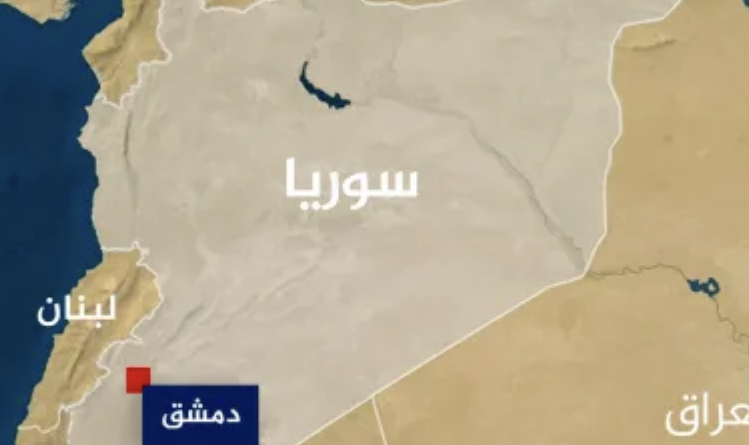Draft Constitution for the New Syria 2024
Introduction by the Syrian Center for Legal Studies and Research
The law emerged with the formation of the state as an essential element, organising its affairs, including the relationships among people, their rights, and duties, both as individuals and groups. The development of the state, including the rights leading to citizenship, has resulted from the evolution of laws, with the Constitution being the most important among them. The Constitution establishes the rule of law over the ruler and the state, not just over the governed as before. Since its inception, the Constitution has defined and guaranteed rights, enabling it to evolve continuously, responding to the development and progress within the state, protecting its societies, and serving as a broad framework for social principles regarding equality, rights, and culture. This evolution has occurred through a cumulative process over a long historical journey.
Despite the twentieth century witnessing broad enlightenment in human rights globally, the success of transforming these rights into constitutions that protect them has varied between states. This has led to waves of movements demanding the bridging of gaps between states and societies through the call for the universalization of democratic constitutions and their supremacy over governments and society to achieve the rule of law specific to each state. As law in our era, characterized by institutions, law, and international agreements, becomes intertwined with the global human rights movement and as a product of civilization, it has become linked with the humanistic, enlightened culture, valuing equality, justice, and democracy. This impact is evident in the culture of people everywhere on a global scale, as demonstrated by the recurring waves of democratic struggles to adopt these values in countries where their governments have either disrespected them or persistently violated them. This has shown that free laws and their culture can bring about changes in the culture of societies, even in those that, until recently, were dominated by backward conditions resisting development, equality, justice, human rights, and democracy.
The Constitution, as it has evolved, is not meant to be a social contract agreed upon by the majority while disregarding or marginalizing the rights of minorities. Instead, it is a set of legal principles crafted by experienced and impartial constitutional experts, ensuring that all citizens, regardless of their background, have equal political rights and participation without discrimination based on gender, religion, sect, ethnicity, or political stance. This means that the Constitution should be designed to protect the rights of all without distinction, guaranteeing that the parliamentary majority, which emerges from a democratic vote, can pursue its agenda while safeguarding the rights of the parliamentary minority. This includes preventing any new laws or actions by the majority that would contradict the Constitution or infringe upon the rights of the minority, thereby closing the paths for the minority to eventually become a majority in future elections.
The Constitution, along with the laws derived from it, also ensures the protection of religious, ethnic, and sectarian minorities from the domination of the majority and combats discrimination. This implies that in our society, every citizen’s right to run for office and to vote should be guaranteed without discrimination, which is a critical safeguard for the unity of the Syrian community in a post-conflict democratic context. It also ensures that everyone can live freely and equally. Therefore, a democratic constitution enables everyone to enjoy their rights regardless of race, gender, religion, sect, or political stance, allowing them to live in a free space and preventing their confinement to frameworks that lack citizenship while protecting their rights to belief and cultural practice.
The Constitutional Court is responsible for protecting these rights and ensuring the Constitution itself is upheld. Its application is carried out through an elected parliament that legislates and establishes governance based on the highest levels of constitutional development, international law, and human rights charters. At the Syrian Center for Legal Studies and Research, we believe that Syrians are on the verge of creating one of the most modern constitutions in the world. We must draw from the constitutional experiences of Arab, Western, and Eastern countries, learning from their challenges and mistakes while also benefiting from successful experiences that have led to strong, civilized, and advanced states to produce a Syrian Constitution that ranks among the best globally.
To this end, we have organized ten workshops on constitutional culture, attended by approximately two hundred Syrians from various ages, regions, religions, sects, and ethnicities. Based on the discussions and ideas exchanged in these workshops, we have concluded a draft Constitution, which we present to the Syrian people to build the Syria that they called for when they first cried out: “Freedom, Freedom,” with the aim of laying the foundations and mechanisms to protect our future from repeating past mistakes and as a means to revive the national spirit and begin halting the current deterioration. Therefore, we hope that the discussion of this project is not based on what we are experiencing today, with its accompanying pain, bitterness, and frustration, but rather on what we aspire for our children and grandchildren: to live in a homeland they are proud of and that guarantees all their rights.
We also hope that this project, through the invitation to participate in its discussion, revision, and maturation, will serve as a beacon and a shelter for all forces committed to freedom and democracy, and as a document for uniting their efforts in building a unified vision for the future.
Lawyer Anwar Al-Bunni
President of the Syrian Center for Legal Studies and Research

